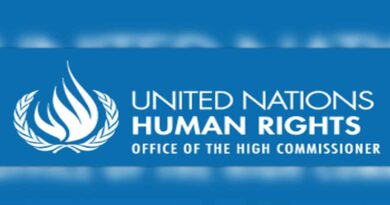Afghanistan: Human Rights Defenders Living Under “Climate Of Fear” – UN Expert
(Special correspondent)
GENEVA (3 November 2021) – Human rights defenders in Afghanistan describe living under a climate of fear, threats, intense insecurity and growing desperation, a UN expert said today, calling for an urgent coordinated response from the international community.
“The threat is very real,” said Mary Lawlor, the UN Special Rapporteur on human rights defenders. “Defenders tell me of direct threats, including gendered threats against women, of beatings, arrests, enforced disappearances, and of defenders being killed. They describe living in a climate of constant fear.
”Among those most at risk are defenders documenting alleged war crimes, women defenders, in particular criminal lawyers, cultural rights defenders, especially those working in banned sectors such as music, and defenders from minority groups. Defenders tell me that some have erased their online data history to evade identification, and that the Taliban are resorting to other ways of finding them – for example that one HRD was identified by an injury to his leg.”
Lawlor said she had received online testimonies* from around 100 human rights defenders, including those in rural provinces, detailing specific tactics used against them. The Taliban have raided the offices of human rights and civil society organisations, searching for the names, addresses and contacts of those who used to work there, she said.
“Many defenders are well known in their local communities, in particular in rural areas, and have left for the anonymity of the cities, but even there they are forced to constantly change locations,” the UN expert said. “Most have also lost their source of income, further limiting their options to find safety.”
Lawlor called for immediate international support to act on concerns of local defenders, including an urgent plan for the evacuation of defenders at high risk, along with their families.
“These are the people who have been fighting for 20 years to advance human rights in their home towns and cities,” she said. “Many say they feel abandoned. States who have supported their work for the past two decades must do more to provide visas, travel documents and routes to asylum for the hundreds of defenders left behind and at risk.”




